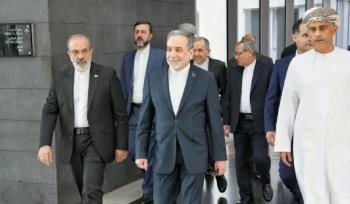Alwaght- Nawaz Sharif, Pakistan’s prime minister and leader of the country’s second-largest political party, resigned on July 28 following a Supreme Court ruling that disqualified him from office over corruption charges.
The disqualification and the resultant resignation of Nawaz Sharif before ending his full term in office made him to be the 13th prime minister to lose the post before concluding the 5-year term in office.
During the past 70 years of the country’s independence, the prime ministers have never managed to finish their terms in office, with the causes being the military coups or the rulings of Supreme Court. Such removals have always been main causes to chaos and controversy on the Pakistani political stage.
Political analysts blame old rifts between Sharif and military and judiciary as standing behind the Prime Minister's ousting. The rifts, experts argue, that now ousted the prime minister have continued to exist to date as they erupted in the 1990s with the Sharif-led Muslim League party of Pakistan.
Sharif disqualification by the Supreme Court well indicated that beside the government that holds the official political power other institutions have a share in the politics and can effectively assert themselves, though unofficially.
Pakistan’s unofficial power structure
When it comes to the country’s official political body, the president of the state, the prime minster, and the chief of general staff are the main constituents, all installed by an electoral college which consists of the Senate, National Assembly of Pakistan, and Provincial Assemblies of four provinces.
The leader of the largest party of the National Assembly is always the prime minster. The main power holder in the Pakistani politics is the prime minister, and the president has a ceremonial post. But this is the country’s official and overt power structure. There is an unofficial face for this power structure, quite different from the official one.
Beside the main three powers in Pakistan, the military, political parties, and religious groups and institutions are other powerhouses in the country. This inconsistent structure of power beside fundamentalism and ethno-sectarianism are main causes to the nation’s regularly-volatile political scene.
Here is a picture of Pakistan’s unofficial power structure
The military
The largest, strongest, and most influential power institution in Pakistan is the military. According to the constitution, the armed forces are banned from any interference in the politics. But the experts argue that the politico-social arrangements in Pakistan make the military the key political apparatus in the country. At the same time, the military is the strongest economic apparatus as it holds the biggest military and civilian industries. No surprise, the trade sector is directly and indirectly controlled by the military.
Tariq Ali, the prominent Pakistani author and political analyst, in his 2003 book The Army-centered Pakistan, published a litany of financial institutions and businesses run practically by the army or the retired army generals. They are now all have deep roots in the Pakistani economic structure and thus help the army tighten grasp on the economy.
This means that a considerable part of the Pakistan’s unofficial power is seized by the military for its holding of the political and economic structures. The former President Pervez Musharraf, who once was the chief of staff of the army, however, described the Supreme Court disqualification decision as a “historic” one and denied any interference of the army in the ruling.
“Today is a historic and important day for Pakistanis," he said in a recorded video posted on Twitter.
The denial by the former army general comes amid growing speculations about possible military role in the court’s decision to oust Sharif. Many believe that such a big role of the military and the powerful generals leaves no wide room for the political parties to play their normal role in the politics.
Political parties
Despite the fact that the military seeks inclusive control of the political and economic institutions in the country, the political parties especially in recent decades struggled hard to reserve a place for themselves in power structure and in the face of the army generals. Their pressing for their rights makes them also a powerhouse in the political arena.
Pakistan has nearly 20 parties but from the point of view of the international categorization, it has a bipartisan political system. Pakistan Muslim League and Pakistan Peoples Party are main political parties in the country. Other parties are predominantly weak and are active only on the sidelines of these two powerful blocs.
Muslim League is a nationalist conservative party and stands rival to the Peoples Party led by Bhutto family and seeks to promote itself as the representative of the secular class of the society. Despite hard work to cleanse the political stage of the military rule, the politicians have always had to face the roadblocks of the army generals. This confrontation even in 2012 led to alliance between Muslim League and Peoples Party that mobilized their resources to oust Pervez Musharraf, then president of the country.
The influential religious circles
Non-political, and majorly religious, circles, have also their own voice the political stage of Pakistan. In fact, it is impossible for the military, political, and business elites to disregard the significance of the Muslim clerics in the political decision making and developments. Many elites are inclined to get closer to the religious figures to make sure that they will win strong support.
Jamaat-e-Islami, Jamiat Ulema-e-Pakistan, Jamiat Ulema-e-Islam, Sepah-e-Sahaba, and Nahzat Fiqh Ja’afari, among hundreds of others, are leading religious circles in Pakistan, though some of them like Sepah-e-Sahaba and Haqqani Network are of radical approaches.



























